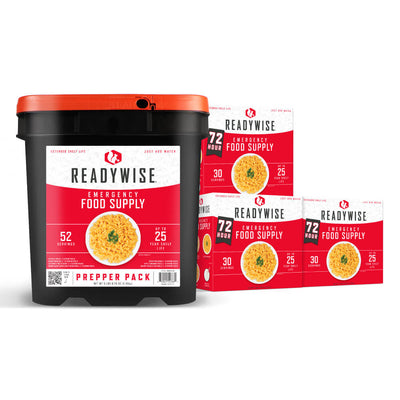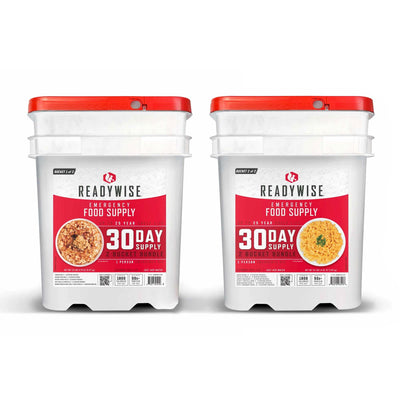Non-Hybrid vs Hybrid Seeds: What's The Difference?
Whether you’re concerned with the rising cost of food or just want to be self-sufficient, you may have started growing your own fruits and vegetables. If so, you may have discovered the ongoing debate about the pros and cons of hybrid and non-hybrid seeds. What’s the difference, and why should you care?
Hybrid Seeds and Commercial Interests
Hybrid seeds are produced by cross-pollinating two different strains of plant. For instance, if one type of large cabbage is susceptible to disease, and another is disease-resistant but smaller, commercial agriculture may cross-pollinate to create seeds which yield larger cabbages with greater disease resistance.
On the surface, that sounds like a win-win, but hybrid seeds have some drawbacks. Indeed, by chance or design (and increasingly by design), many hybrid plants produce no seeds at all.
Hybrid seeds are scientifically produced, either to sell to consumers or to grow commercial crops. As such, the hybridization often focuses on pest or disease resistance, color, size, and how well the harvested crop responds to transporting. Nutritional values are rarely a concern, and may suffer in comparison to non-hybrid seeds.
Non-Hybrid Seeds and Sustainable Farming
Non-hybrid seeds, or cross-pollination seeds, are naturally pollinated. They come in a wealth of different varieties, and produce seeds which grow into plants with similar characteristics as the original plant. Over successive generations, non-hybrid plants may also adapt to local growing conditions.
Throughout most of history, human beings have planted non-hybrid plants. If you’re farming for sustainability, the ability to harvest your seeds from season to season is a huge advantage. The disadvantage is that non-hybrids do not, generally, yield as much produce as hybrid seeds (even if the nutritional value is higher), and can be more vulnerable to disease and pests.
Seeds, Security, and Biodiversity
Sustainable farmers and gardeners prefer non-hybrid seeds. Being able to gather seeds from your own crops a huge advantage if you don’t want to rely on outside sources for your food—if civilization fell tomorrow, hybrid seed growers have a renewable survival resource non-hybrid seed users lack.
Growing your own food from replenishable seeds also means you’re not at the mercy of the economy. Food and seed prices skyrocket in times of economic uncertainty, so non-hybrid seeds are an investment in your personal security. Non-hybrid growers can also take part in seed swaps, increasing the variety and selection of their seeds.
Using non-hybrid seeds has another advantage: you’re helping preserve the biodiversity of our food supply. Many of the rarer “heirloom” and “heritage” seed varieties would be extinct were it not for the efforts of non-hybrid gardeners and farmers.
If you’re concerned with sustainability, the prohibitive cost of food, or biodiversity, non-hybrid seeds are your best choice. If you’re going to plant a crop, you want to do so more than once.
Resources
http://www.non-hybrid-seeds.com/anhs/whyusenonhybridseeds.html
http://blog.seedsavers.org/blog/open-pollinated-heirloom-and-hybrid-seeds
















































































